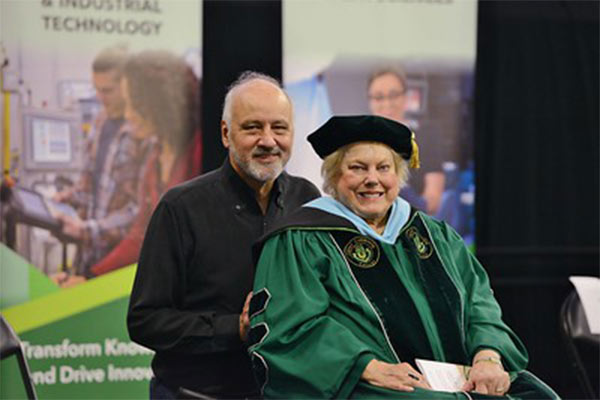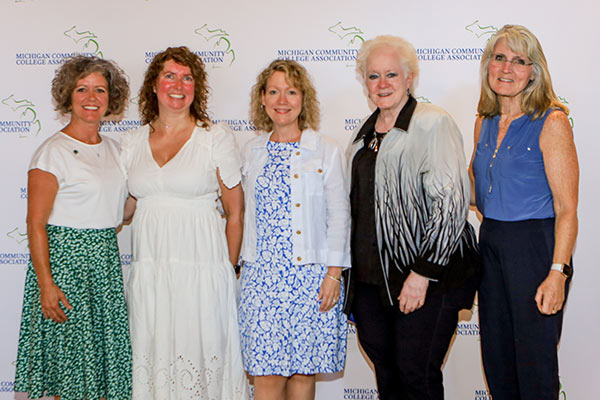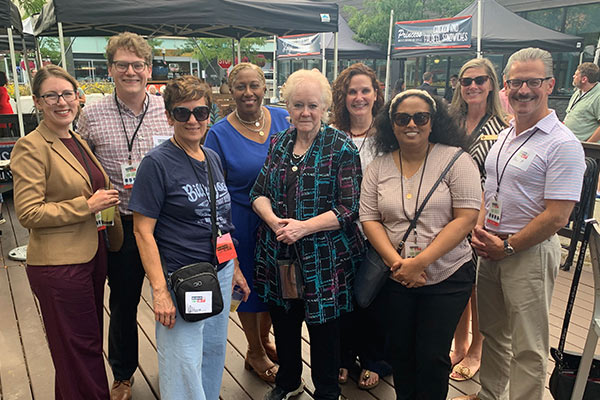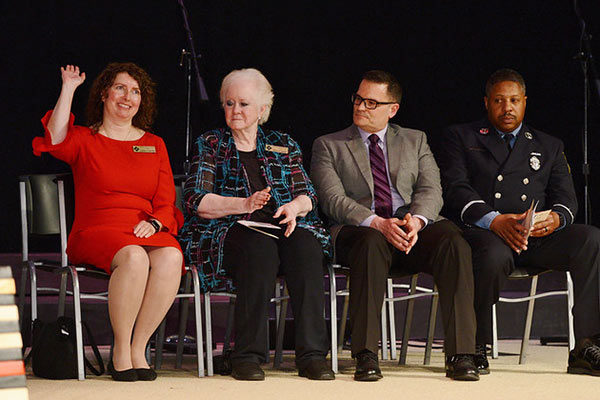Understanding the Role of a Board Member
The Oakland Community College Board of Trustees provides strategic leadership and public stewardship for Oakland Community College. Elected by the residents of Oakland County, the Board sets the College’s mission, vision, and policies, ensures responsible use of public resources, and appoints and evaluates the College Chancellor. Working in open session and in accordance with Michigan law, the Trustees represent the interests of students, employees, and the broader community while advocating for accessible, high-quality education and workforce development across the region.


Time Commitment
Serving as an OCC Trustee means staying connected with the life of the college. This can include participating in monthly Board and committee meetings, joining campus and community events like commencements or special celebrations, and taking part in occasional trainings or conferences that help shape the college’s future.
- Monthly Board Meetings: 2–4 hours
- Special Meetings: Typically 2–4 per year
- Training Sessions: 1–2 per year, usually a half-day each
- Conference Attendance: Four annual conferences per year, usually 3–5 days travel for each
- Community Events: Average of 4 hours per month
- College Events: Ranging from 2–8 hours per month, including commencements, program ceremonies, and special celebrations (culinary dinners, speaker series, tailgates, welcome week, etc.)
- Committee Meetings: Approximately 2 hours per month


Requirements
OCC Trustees work collaboratively to represent students and the community with integrity. Trustees are comfortable engaging with the public and media, weighing tough decisions, and always keeping the College’s best interests at heart.
- Work collaboratively as a single Board, not as individual trustees
- Engage with the public, students, and employees while respecting the trustee role
- Make difficult decisions with integrity
- Put students’ and the community’s best interests first
- Respond thoughtfully to both positive and negative media coverage


Helpful Skills
Effective Trustees are comfortable with technology, confident communicators, and familiar with finances and public-meeting requirements, enabling them to lead and make informed decisions.
- Comfortable using technology; all documents and communications are provided electronically
- Proficient with Microsoft Office (Outlook, Word, Excel, PowerPoint)
- Familiar with Adobe PDFs
- Experience with Board software (currently OnBoard)
- Able to communicate effectively via text
- Strong public speaking and interpersonal skills
- Understanding of financial documents
- Knowledge of bargaining unit protocols
- Familiar with Michigan’s Open Meetings Act, including statute and handbook requirements
- Legislative understanding
- Knowledge of meeting protocols
- Comfort with business travel
- Experience with Policy Governance – Carver Model


Guide To Policy Governance
Policy Governance® is a system of governance that enables the Board of Trustees at Oakland Community College to provide strategic leadership in creating the future for the College. The system enables the Board to lift its focus above unnecessary, time-consuming operational details and to focus on the major purpose of governance, creating and sustaining a vision of what the organization contributes to the community. Of great importance, this style of governance meets the Higher Learning Commission (HLC) recommendations. The HLC supports this form of governance as it establishes a strong delineation between College oversight (the Board’s role) and College administration/operations (the Chancellor’s role). The Oakland Community College Board is primarily concerned with the ENDs of the organization (what good is produced for what people) and delegates the MEANs (programs services, and operations) used to achieve the ENDs to the Chancellor. The Oakland Community College Board governs on behalf of an identifiable ownership and is externally and future-oriented. In fulfilling its role, the Board has three essential jobs. It links with the communities that own the institution, it makes policy and they assures institutional performance through the Chancellor’s performance.
The model is based on 10 principles of trusteeship:
- The Board exists to act as the informed voice of the ownership of the institution. The first job responsibility of the Board is to define and connect with the ownership – those on whose behalf it is governing the College.
- The Board has authority only as a whole; individual trustees have no individual power to govern the institution or direct the Chancellor or staff.
- The Board’s decisions and directions are expressed as policy, which is the expression of the values and perspectives of the Board. The second job responsibility for the Board is to make policy.
- In making policy, the Board starts with large policy statements and systematically narrows their policy statements a step at a time, until they are comfortable with any reasonable interpretation the Chancellor may make.
- The Board proactively defines and delegates authority to the Chancellor for the MEANs of the organization, rather than reacting to and ratifying administration’s proposals. They are not involved in managing operations, staff or facilities.
- A pivotal duty of governance is to determine the ENDs (the desired results) of the organization. ENDs define what good is produced for which people, at what cost. The ENDs policies state the results or impact the College should have for those external to the College.
- The Board addresses the MEANs used by the Chancellor to achieve the ENDs by defining as policy the boundaries within which the Chancellor must operate. The definitions of these boundaries comprise the Executive Limitations policies;
- The Board is responsible for designing its own job responsibilities and standards for Board practice defined in the Governance Process policies.
- The Board defines relationships with administration that are empowering, responsible and clear. The relationships are stated in Board-CEO Relationship policies.
- Institutional performance is monitored rigorously against policy criteria. The third job responsibility of the Board is to assure executive and institutional performance through monitoring progress toward ENDs and adherence to limitations.
Policy Categories
Boards that use Policy Governance® set policy in the following four areas:
- END: The Board’s most important job is to devise the policies that clearly state what the desired results, the ENDs, of the organization’s action are to be. What needs are to be met, for whom, and at what cost? How will the world be different as a result of the organization’s actions? What are the expected outcomes of the institution’s programs for those it serves?
- Executive Limitations: While the Board prescribes the ENDs for the institution, it only sets limits on the MEANs within which the Chancellor operates. These limits are boundaries of prudence and ethics for Chancellor practices, activities, circumstances and methods.
- Board-Chancellor Relationship: In addition to setting a vision and defining what constitutes inappropriate Chancellor practices, the Board must set policies about how it relates to the Chancellor. In essence, the Chancellor is the Board’s sole employee and the link between the Board and staff. Board-Chancellor Relationship policies define the Chancellor’s role, delegation and accountability.
- Governance Process: The Board sets policies for its own workings, its responsibilities (noted above), its structure, how meetings will be conducted and standards for the Board. The policies reinforce the Board’s responsibilities to provide vision and governing leadership.
Contact Information
Auburn Hills Campus
2900 Featherstone Rd
Auburn Hills, MI 48326-2845
Phone: (248) 341-2119